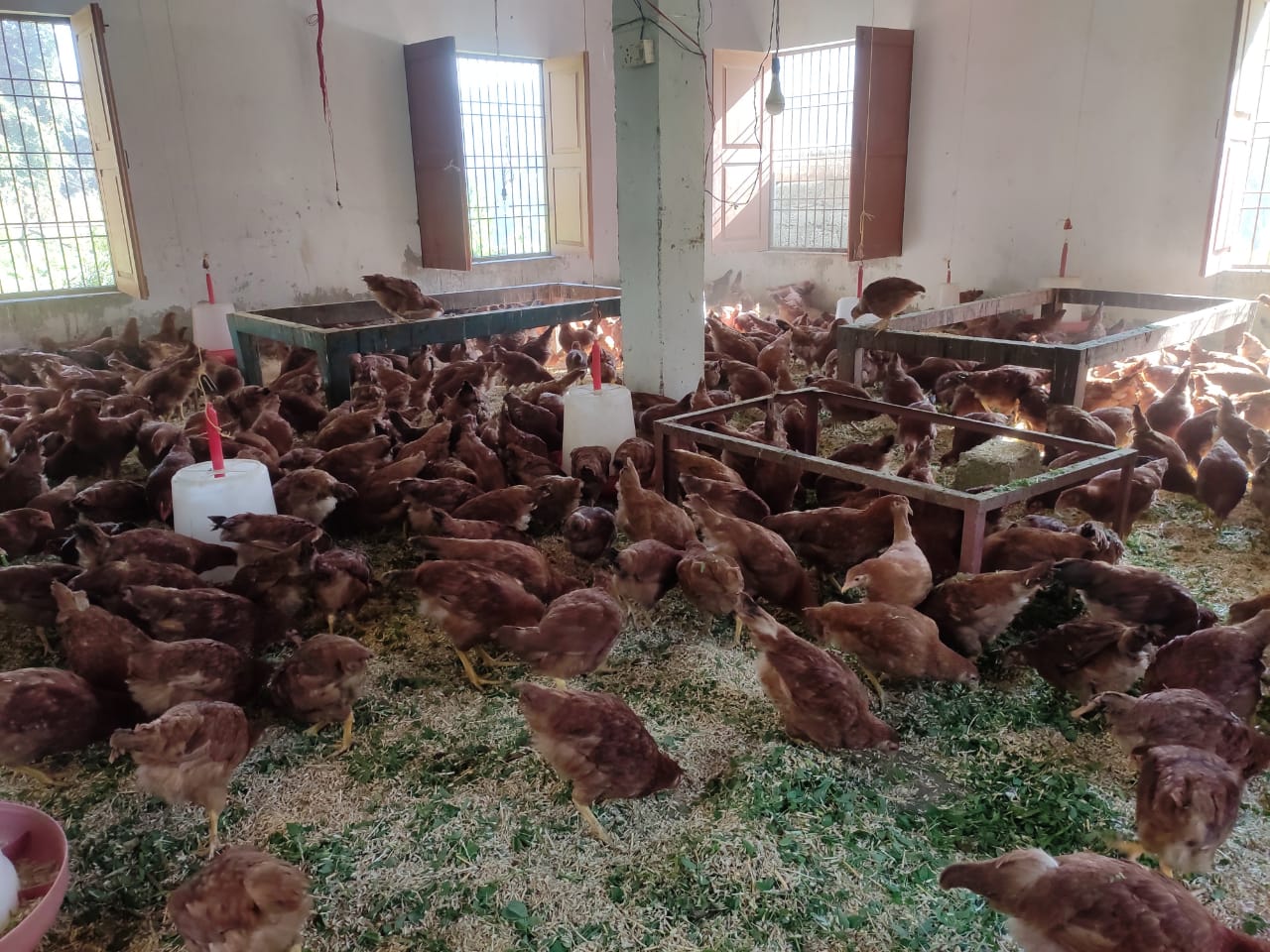Pradeep’s day has already started. It’s 5 in the morning, and the 32-year-old is busy preparing a scrumptious mix of feed for his birds, eagerly waiting for their breakfast. By six, the birds are fed and let free to roam on his farm’s premises.
Pradeep Singh Thakurathi and his childhood friend Kaveendra Singh Pokhariya own and enjoy running after the chickens in their poultry farm, which they began in their respective villages in Uttarakhand’s Pithoragarh district.

Friendship and deep love for nature
The duo continue to share a deep bond. As kids while they were growing up–near Didihat, a town located in district Pithoragarh–loved the forests, mountains and lush green agricultural fields. And this love for their village pulled the duo back to their roots.
Both Kaveendra and Pradeep lived in different cities like Dehradun, Delhi and Bareilly, for over a decade, before the nationwide lockdown forced them to return to their villages: Dokuna and Khetar. “Our villages are not too far from Didihat town, ” says 32-year old Pradeep. My village Khetar is 12 kilometres away from the town and Kaveendra’s village Dokuna is around 20 kilometres”.

“During our stay at the village due to COVID restrictions, we both fed and took care of four or five chickens owned by the family. Our mornings started with unlocking the chicken from the cage, feeding them and then at dusk put them back in the cage.These chicken would roam freely through the day feeding on insects, worms, herbs, vegetable peels, and bask in the Sun to dry their feathers. It was a pleasant sight to see the birds enjoy their freedom, unlike us who chose to live in metro cities inhaling polluted air. The life in the city strangled our souls and the pigeon-hole accommodation felt nothing more than a dark dungeon. So, that was the turning point. This gave us the idea to set up a free-range poultry farm”, Pradeep told Organiser.

The organic journey: Farm to Table
Once the duo decided what they wanted to do, the process was not at all organic. “It set us on an adventurous journey of trial and error. We initially felt lost but we took one step at a time. We spent the first few months understanding bird behaviour. We knew from our traditional knowledge to upkeep and raise healthy birds without using antibiotics or nutritional supplements. Our forefathers traditionally used sun-dried maize powder as a feeder, and set the birds free for themselves to feed naturally on worms and insects. We improvised a bit. So, we set up a vermicompost pit to supply earthworms, a delicacy relished by the chickens. This also helped us extend our farm service to growing organic vegetables using vermicompost prepared using bird droppings, cow dung and earthworms.” Today, Kaveendra and Pradeep run two independent farms in their respective villages called the Khetar Valley Green Farm and the Pokhariya Green Farm, Dokuna.


In the last three-years, the duo has spent six lakh rupees to set up the farms. But the response is overwhelming. On an average 300-350 eggs are collected daily from the farms. Each egg is sold for Rs 10 and in winter months an egg fetches Rs12. There are about 500 birds at the farms. “We bought a thousand birds from the hatchery. Out of the thousand birds, 500 were male birds. Since the birds raised at the farms are purely organic and healthy, a whole chicken for meat consumption has also helped us recover the operational costs”, explained Pradeep.

To check disease outbreaks and infections in birds, the the chicken coop (shed) is dusted with lime powder. During the monsoon season, there is a threat of viral and bacterial infections. So, we use naturally available ingredients and traditional veterinary wisdom to rear our birds. For example, turmeric is used to heal wounded birds. A mix of turmeric, giloy, ginger is boiled together. This infused water is fed to the birds as immunity booster. Onion and garlic peels are fed to check viral load in the birds.




















Comments